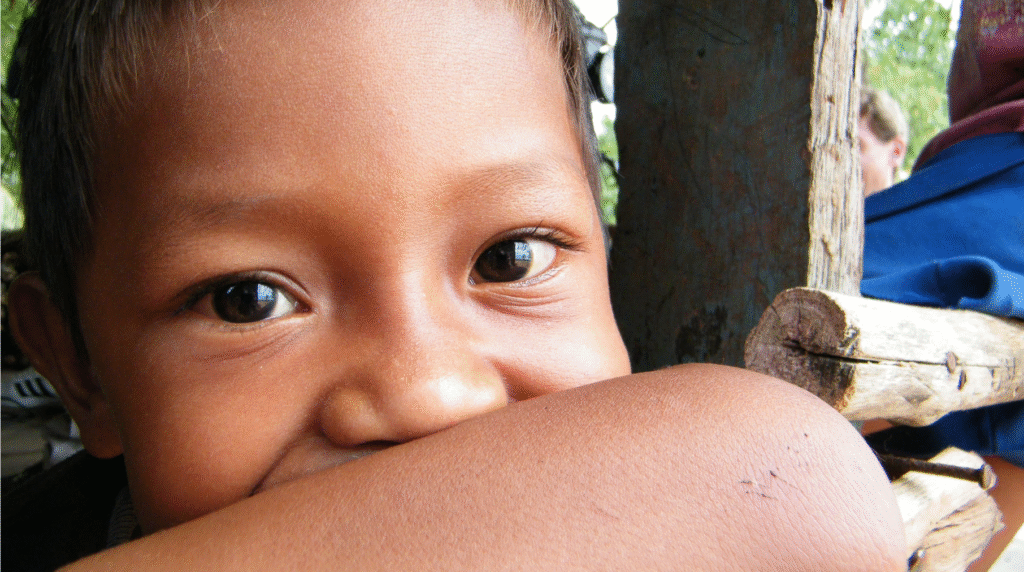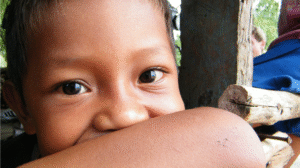When we talk about autism, we often rely on Western models that frame it as a medical condition or disorder. However, in many Indigenous cultures in Canada, the perspective is quite different and deeply enriching.
A Different Way of Seeing the World
In several Indigenous communities, there is no direct translation for “autism” or “disability.” For example, in the Cree language, the word pîtoteyihtam means “he/she thinks differently.” This term reflects a non-pathologizing view of autism, grounded in respect, acceptance, and the belief that every person is intentionally created and inherently valuable.
Within this context, traits commonly associated with autism – such as sensory sensitivity, social interaction difficulties, and unique communication styles – are seen in a neutral or even positive light. Rather than being reasons for exclusion, these traits may be recognized as gifts, such as intuition, a deep connection with nature, or spiritual insight.
The Challenges in Practice
Despite this welcoming worldview, Indigenous autistic individuals face significant challenges, especially in accessing diagnosis and support services. Many remain undiagnosed due to a lack of specialized services in Indigenous communities, particularly in remote areas or on reserves. Families often have to travel long distances just to obtain a clinical assessment.
Another major obstacle is the lack of culturally relevant services. Most interventions are based on Western models, which often don’t align with Indigenous values, practices, or worldviews, making these services less effective or even alienating.
Recognizing neurodiversity within Indigenous cultures is essential for fostering true inclusion. Respect for different ways of being and thinking is a lesson the world can learn from Indigenous Peoples. After all, in societies where diversity is seen as a strength, everyone benefits.
The Hidden Cost: How the Lack of Autism Services on Reserves Affects Indigenous Families
In Canada, Indigenous families living on reserves face a painful and often invisible burden – the lack of access to autism support services. This gap in care doesn’t just create logistical challenges; it deeply affects the health, well-being, and future of entire families, especially autistic children.
A Journey for Services: Time, Distance, and Weather
In many Indigenous communities, especially remote or northern ones, autism services are not available nearby. Families are forced to travel two to three hours each way – sometimes through extreme weather – just to reach therapists, speech-language pathologists, or specialists. This journey becomes a regular, exhausting reality.
Even when funding exists, the scarcity of qualified professionals leads to long waitlists and limited options. Often, there’s no “next provider” available. For some children, this means never receiving a diagnosis at all.
Delays That Last a Lifetime
Early diagnosis and intervention are key to improving the long-term outcomes of autistic children. But when services are unavailable or delayed, families miss critical windows for support. Children may enter school without the resources they need to succeed, and families are left without guidance or strategies to help their child thrive.
The Financial and Emotional Toll
The cost of constant travel (fuel, accommodations, time off work) adds up quickly. Many families are also juggling childcare for siblings or managing multiple responsibilities without sufficient support. These pressures lead not only to financial strain but also to emotional exhaustion, frustration, and deep feelings of isolation.
The Long-Term Consequences
Without timely and culturally appropriate support, autistic Indigenous children risk entering adulthood without essential skills or access to adult services. This can lead to further marginalization, limited independence, and fewer opportunities for meaningful inclusion in community life.
The cumulative effect of these challenges exacerbates the impacts of colonization and intergenerational trauma. Families are left in a state of limbo — aware that help is needed, but unable to access it.
How Lumos Technologies Can Help Bridge the Autism Care Gap on Reserves
Indigenous families on reserves in Canada face serious barriers to accessing autism services – from geographical isolation and long waitlists to a lack of culturally relevant care. Lumos Technologies, with its focus on digital health solutions and community-driven innovation, is uniquely positioned to help address these gaps.
1. Telehealth and Remote Diagnostic Tools
Lumos specializes in digital platforms that expand access to care. Through telehealth, Lumos could offer:
- Remote autism screening and assessments conducted by qualified professionals.
- Follow-up consultations, therapy planning, and family guidance – all online.
- Reduced need for long-distance travel, especially in northern or rural communities.
2. Culturally Adaptive Digital Platforms
Lumos can partner with Indigenous communities to co-develop culturally relevant interfaces:
- Use Indigenous languages, visuals, and storytelling elements to create accessible platforms.
- Embed traditional knowledge systems in care plans.
- Offer culturally sensitive content that acknowledges Indigenous views on neurodiversity.
3. Training and Capacity Building in Communities
With their tech expertise, Lumos could offer online training modules for:
- Indigenous health workers, educators, and parents.
- Community-based autism aides or early childhood support workers.
- Local capacity-building that decreases dependency on external providers.
Lumos Technologies has the tools to revolutionize how autism care is delivered on reserves. It’s not just about closing service gaps – it’s about creating a new, inclusive model of care that respects Indigenous ways of knowing and ensures that no child is left behind.
Sources
Bruno, G., Chan, T. A., Zwaigenbaum, L., Coombs, E., Indigenous Relations Circle, & Nicholas, D. (2024). Indigenous Autism in Canada: A Scoping Review. Journal of autism and developmental disorders, 54(9), 3478–3491. https://doi.org/10.1007/s10803-023-06045-z
Fong, V. C., McLaughlin, J., Schneider, M., Grant, B. (2024). Comparing the autism service needs and priorities of Indigenous and newcomer families in Canada: Qualitative insights. Res Autism Spec Dis, 111, 102314. https://doi.org/10.1016/j.rasd.2023.102314






